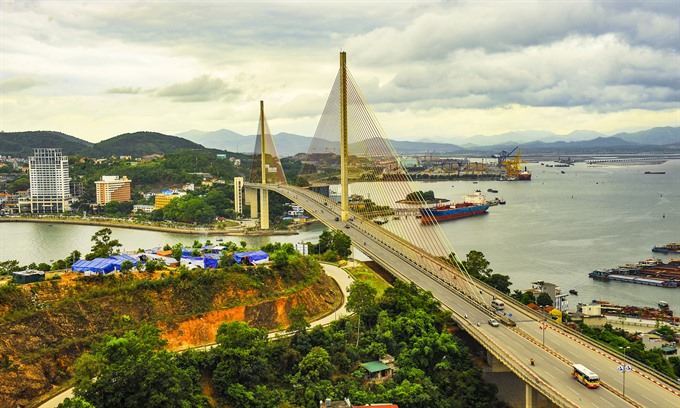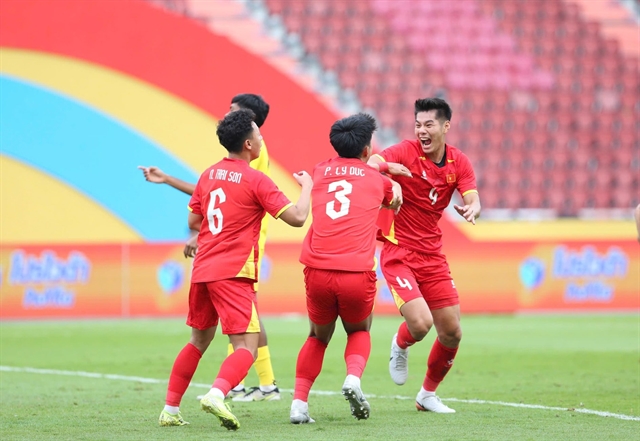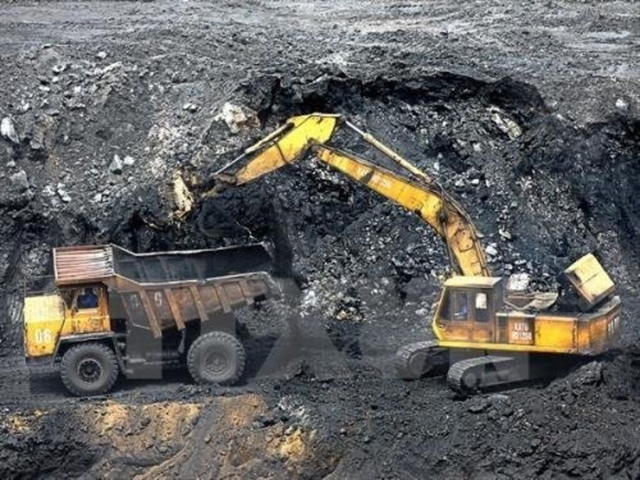 Economy
Economy

More than 100 scientists, researchers and practitioners from 12 nations are taking part in the three-day International Conference on Sustainable Development of Civil, Urban and Transportation Engineering (CUTE) 2018, which opened in HCM City yesterday.
 |
| The cable-stayed Bãi Cháy Bridge in Hạ Long City in Quảng Ninh Province. Traffic infrastructure in the city has been drastically improved in the past 10 years. — VNA/VNS Photo Minh Đức |
HCM CITY – More than 100 scientists, researchers and practitioners from 12 nations are taking part in the three-day International Conference on Sustainable Development of Civil, Urban and Transportation Engineering (CUTE) 2018, which opened in HCM City yesterday.
“CUTE 2018 provides an international forum on the latest technologies and research in these engineering fields,” Prof Lê Vinh Danh, president of Tôn Đức Thắng University, the organiser of the conference, said in his opening speech.
Prof Geert Wets, from Belgium’s Hasselt University, said that sustainable development was an “urgent demand” and that civil engineering has a significant impact on the environment.
“It is reported in numerous studies that civil engineering is responsible for several important problems such as energy consumption, CO2 emissions and natural resource depletion,” he added.
Alternative solutions have been sought in the last decades to reduce environmental impacts in the civil engineering sector, he said.
Different proposals include reducing energy consumption by using low-embodied energy materials (“eco-materials”); developing energy-efficient buildings with high thermal isolation; and using renewable energy (solar, wind, geothermal) and eco-architecture principles to optimize energy consumption of the buildings.
“Today, sustainable development in civil engineering is not restrained at a building scale. The city scale should be considered: transport of occupants between their residences and their work sites, and the energy losses in the energy distribution network,” Prof Woloszyn Monika, from Savoie Mont Blanc University in France, said.
“There are a combination of different approaches which can contribute to sustainability of the civil engineering sector: investigations of sustainable materials; intelligent principles in architecture design; and different tools for analysis and assessment of energy performance, at a building scale and also at a city scale,” she added
Scientists and professionals at the conference plan to discuss construction techniques, sustainability in transportation techniques and sustainable trends in urban master planning and architecture.
Presentations will include design of green buildings, foundation engineering, nanotechnology in civil engineering, green highway design and maintenance, sustainable airport planning, operation and management, and transformation of old craftsman villages into new economy areas.
CUTE 2018 helps connect Vietnamese universities, research institutions, foreign universities, and researchers, with the aim of developing new projects and applying research to practical urban planning, architecture and transportation proposals.
The conference has received 100 papers, and after a comprehensive evaluation process by internationally recognised experts, the organising committee chose 79 papers on construction, roads, bridges, urban development and architecture.
Attendees are from Australia, Belgium, the Czech Republic, France, Italy, Malaysia, Poland, South Korea, Switzerland, Taiwan, Thailand and Việt Nam.
The conference is co-organised by Tôn Đức Thắng University (Việt Nam), Hasselt University (Belgium), Technical University of Ostrava (Czech Republic), Savoie Mont Blanc University (France), University of Trieste (Italy) and Wroclaw University of Science and Technology (Poland).
The first CUTE was organised in 2016 in HCM City. — VNS




